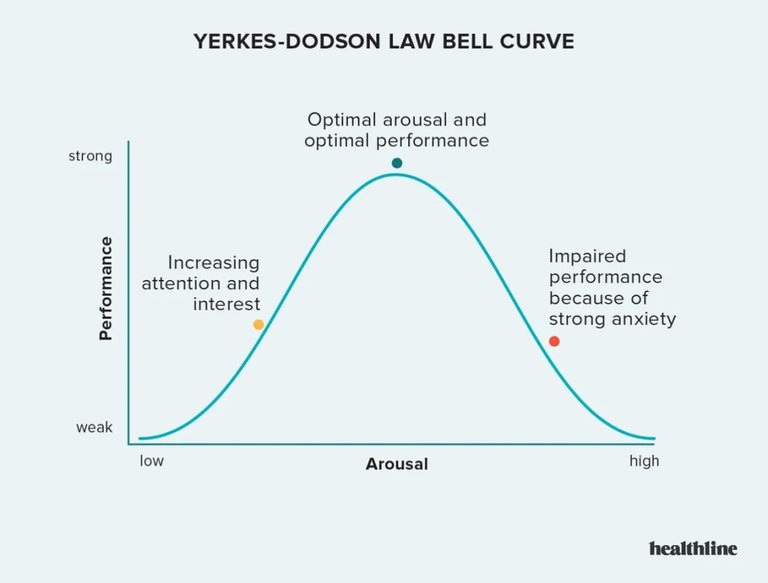Procrastination is an endless habit that is easy to fall in to and difficult to climb out of.
Despite its difficulty, procrastination can be defeated by learning why you keep putting off your goals. With a few easy adjustments, any task can be adjusted to better bring about its achievement.
First off, why do we procrastinate?
Procrastination occurs at either end of the bell curve used in the Yerkes-Dodson law of psychology. In this law/theory, optimal performance is achieved at the balance point between low stress and high stress (or arousal-motivation).
Essentially, if a task is low stress or is boring to you, you will not be motivated to complete it. On the other end, if you are too stressed about a task, you will be in the fight-flight-freeze response and you will not be able to complete the task.

From:https://www.healthline.com/health/yerkes-dodson-law#how-the-law-works
How to avoid procrastination?
Because procrastination occurs at both ends of this curve, the trick is to nudge the task towards the middle of the curve, into the optimal motivation zone, in order to accomplish what you want to do.
In the low motivation zone, you can motivate yourself to complete your task by:
• Give yourself a deadline
• Have an accountability partner (a friend or peer that checks in to see if you have completed the task)
• Increase the difficulty of the task
• Delegate the task to somebody else
In the high stress zone, you can reduce the task to make it more achievable by:
• Breaking the task into smaller tasks
• Spreading the task out over time
• Adjust the expected result of the task
• Outsource the entire task or parts of it to somebody else
With these tips, you can adjust the motivation around a task in either direction and cut down on procrastination.
What does this look like in practice?
With any project or habit, at the beginning we may jump in with both feet and be excited with the novelty of the situation. Once we get past the honeymoon phase, we may feel that we are either doing too much, or the task has become boring. Instead of throwing out the whole project or habit, adjust it!
For example, let us say you want to write your first novel. On the first day you are very excited and you spend three hours typing away. By the third day of this, you cannot see the finish line and begin questioning if this book will ever be finished. You feel like this project is too much and you contemplate burning all the evidence so no one knows about your abandoned novel.
Before you light that match, try spreading the work out over time. Instead of writing for three hours a day, try writing for 30 minutes at the same time every day. By the end of a week you will have spent 3.5 hours writing consistently.
As the weeks drag on you start to wonder again why you started this project and dream of the day it will be done. You start to lose your motivation for your daily 30 minutes of writing and it starts to dwindle down to 10 minutes a day. Do not give up! Set a deadline that you want to be done with the whole book (you can even set smaller deadlines for sections/chapters to keep yourself moving forward). Having this deadline as a tangible end point will motivate you to continue writing every day until it is done.
By the end of this process, you will have conquered a feat that most people only dream of, your very own original novel!
Support the author and buy a coffee! https://www.buymeacoffee.com/emerycastex